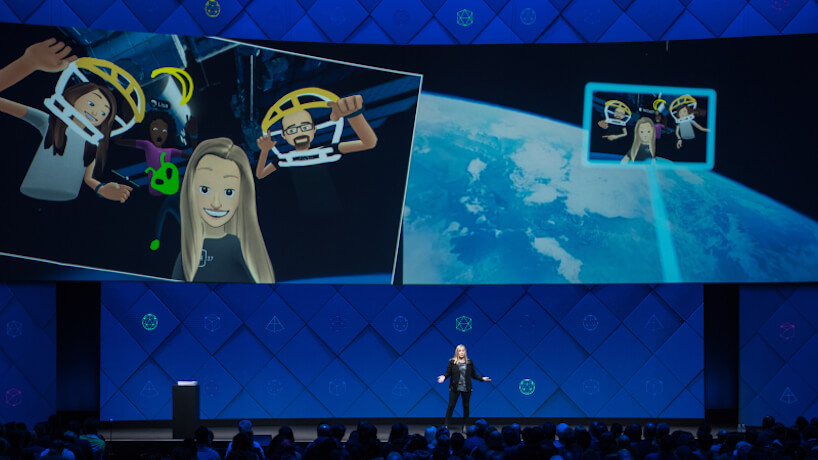At Facebook’s annual developer conference on April 18, the audience received a glimpse of a new platform designed to make virtual reality a place for groups. It’s called Facebook Spaces, and it’s built to take users to different places together. I got a glimpse of the technology in action from Joel Comm, CEO of InfoMedia, in his presentation at the DMAI CMO Summit in Denver last week. Comm is a tech enthusiast with a big passion for the possibilities of today’s emerging high-priced gadgets and goggles, which he thinks will help everyone attend a virtual event soon.
But Comm isn’t referring to a typical virtual broadcast that allows attendees to tune in via their desktops and mobile devices. Instead, he’s talking about a futuristic, put-a-headset-over-your-face type of event that could be fueled by the Spaces platform. Spaces touts the ability to “hang out with your friends in a fun, interactive virtual environment as if you were in the same room” — an experience that Comm believes will carry over into the business-events landscape.
“What if you wanted to hold a conference, and it was difficult for people to travel,” Comm said, referring to one of the fundamental challenges that have always affected meetings and events. “Instead, they can go into a VR space, and with a controller, each person will be identifiable by graphics overhead. The closer you get to someone, you’ll get louder. This is what VR events are going to be like. In the not-too-distant future, you’ll attend one.”
“You won’t be able to shake hands,” Comm added, “but you’ll be able to instantly save other attendees to your contact information. You’ll be represented by avatars in the beginning, but eventually, you’ll look more like yourself.
SEE ALSO: Why Your Sponsorship Team Needs to Start Thinking About Virtual Reality
Comm showed a video of his initial test of Spaces. He took selfies (well, selfies of his avatar), wrote postcards, visited Pittsburgh, and called friends in real life on Facebook Messenger. Not surprisingly, he loved it. For me, though, the animated images looked more like an immersive video game than an actual different level of reality.
I’m not the only one who’s skeptical of Spaces as a true game-changer for VR. Alex Heath, a tech reporter for Business Insider, raised a number of downsides to the experience in his assessment of Spaces. “I found the Oculus Rift headset to be physically uncomfortable to wear for more than a few minutes,” Heath wrote, “which makes the idea of ‘hanging out in VR’ unattractive.”
Nevertheless, the events industry should prepare for an increased interest in virtual reality. Until now, the consumer demand for high-priced headsets has been relatively unimpressive, but if any company can create a real sense of excitement around VR, it’s Facebook. With nearly 2 billion users around the world, it’s easy to see how the future will include quite a few likes for a new kind of social experience.
How do you think virtual reality will affect conferences and events? Are you worried that the next generation of attendees may prefer meeting, greeting, and learning with a set of goggles on their heads? Go to Catalyst to share your thoughts.

